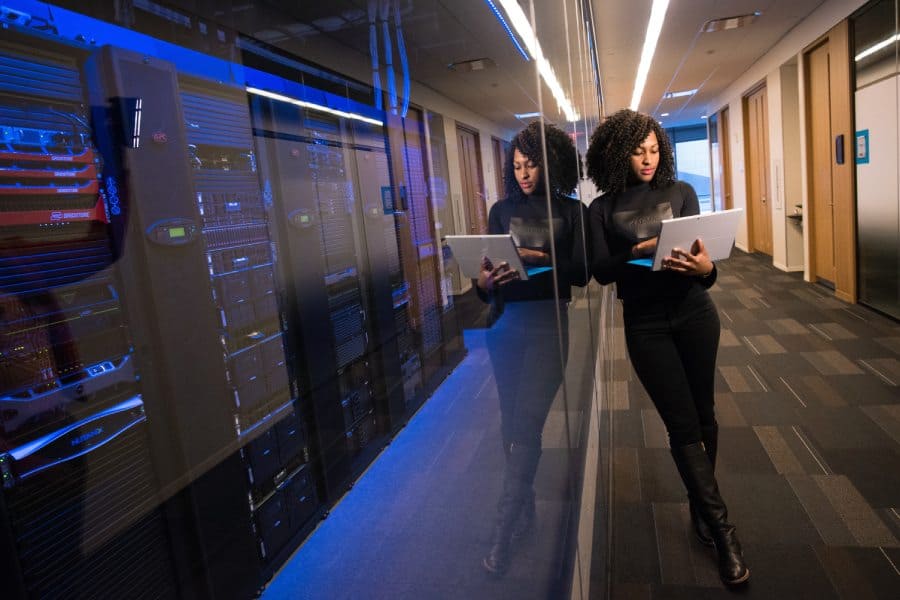Employee-Related Cybersecurity Risks: Protect Your Business 2024

Employee-Related Cybersecurity Risks: Protect Your Business
Your biggest cybersecurity threat might be at your company’s computer. In today’s world, risks from your employees are a top concern. They can unknowingly leak data or even purposely threaten security.
Ark Solvers knows how important it is to tackle these risks. Doing so shields your company from data breaches and loss of money. Companies can lower their risk by teaching about cybersecurity and implementing strong security measures.
Key Takeaways
- Employees play a critical role in maintaining cybersecurity
- Insider threats can lead to significant data leakage
- Cybersecurity awareness training is essential for all staff
- Implementing strong security policies reduces risks
- Regular security audits help identify potential vulnerabilities
- Balancing security with employee productivity is key
Understanding the Scope of Employee-Related Cybersecurity Risks
Employees can pose serious threats to a company’s cybersecurity. These threats can come from inside the organization and cause major data breaches. We will examine how these risks impact a company’s security.
Defining insider threats and their impact
Insider threats are from people inside the company who know its secrets. They could seriously hurt the company’s image and money. Some employees might try to steal or break a company’s systems. Others might accidentally open the door to hackers with their actions.

Assessments
The role of human error in cybersecurity breaches
Human mistakes play a big part in cybersecurity risks. Things like opening phishing emails or having weak passwords are dangerous. They can lead to accidentally sharing secret details. Often, this happens because people need to learn the right way or be trained well.
Unintentional vs. malicious employee actions
What employees can be on purpose or by accident? Accidental things might be sharing secret data or being tricked by hackers. On the other hand, some may do harmful things on purpose. This could be stealing data or ruining systems. Both kinds of actions are serious for cybersecurity. It shows why companies need to train and protect their employees well.
- Unintentional actions: Accidental data leaks, falling for phishing scams
- Malicious actions: Deliberate data theft, system sabotage
To safeguard against these threats, it’s key to understand and address them. Developing strong security plans and educating employees is vital.
The Dangers of Weak Password Practices
Weak passwords are a big threat to business safety. Many workers need to realize the danger of bad password habits, which leave companies open to cybercriminals’ attacks.
Password Reuse and Its Consequences
Using the same password for different accounts is both common and risky. If one account is hacked, the others may be too. This endangers important company info and can lead to unauthorized users gaining access.
The Importance of Strong, Unique Passwords
To keep cyber threats at bay, it’s key to make strong passwords. A strong password is:
- At least 12 characters long
- Full of both big and small letters
- Has numbers and special symbols
Avoid using your info in your passwords. Make each password different for more safety.
Implementing Password Managers for Enhanced Security
Managing many strong passwords can be difficult. Password managers make this easier by creating and saving hard-to-crack passwords. This helps workers keep their passwords strong, and by using password managers, companies improve their online defenses.
Social Engineering Attacks: How Employees Fall Victim
Social engineering attacks are a big risk for employees now. These tricks make workers unintentionally help hackers get into company systems. For example, phishing scams fool people into giving out secrets or clicking on bad links.
Cybercriminals pretend to be someone the employees trust. They might act like bosses, IT help, or customers. Because people naturally want to help, they can only slip past security checks if they know.
- Email phishing: Fake messages mimicking legitimate sources
- Vishing: Voice calls to extract sensitive information
- Baiting: Offering free items to lure victims
- Tailgating: Unauthorized physical access by following employees
The results of these scams can hit hard. There could be a loss of data, money, and a damaged reputation. To fight back, companies need to teach their staff well about cybersecurity. Teaching them how to spot and stop social engineering is key.
Good training makes employees ready for real threats. They learn to see warning signs in emails and other messages. Topics like safe emailing, protecting passwords, and keeping secrets safe should be included. With a strong culture of security, businesses can lower their risk of being attacked through social engineering.
BYOD Risks and Challenges in the Modern Workplace
Bring-your-own device (BYOD) policies have changed how we work. They offer flexibility but also raise security issues. Let’s examine the risks and how to handle BYOD in today’s work settings.
Security Concerns with Personal Devices on Company Networks
Using personal devices for work can risk company data. If devices are not secured, data breaches and malware can happen. The risks increase even more when employees use the cloud for work from different places.
Balancing Convenience and Security in BYOD Policies
BYOD policies need to be both user-friendly and secure. Companies should establish clear rules for using devices and accessing data, keeping remote work safe and productive.
Best Practices for Secure BYOD Implementation
Companies should take steps to lower BYOD risks. For example, they can require encryption on devices to keep them updated. They should also be able to wipe devices remotely if needed. Teaching workers how to use devices safely is also key to a secure workplace.
FAQ
What are employee-related cybersecurity risks?
Employee-related cybersecurity risks come from what employees do, on purpose or by accident. These risks include insider threats, leaking data, using weak passwords, and falling for social engineering. All these can hurt a company’s cybersecurity.
What are insider threats, and how can they impact a business?
Insider threats occur when someone inside the company does something bad for the company. This could be stealing data, intellectual property, or disrupting systems. It could cause big money losses and harm a company’s reputation.
Why are strong, unique passwords crucial for cybersecurity?
Strong, unique passwords are vital to keep important information safe. Hackers can easily guess bad or shared passwords. They could then access entire systems. Using password managers and setting strict rules about passwords helps a company stay safe.
How do social engineering attacks target employees?
Social engineering attacks like phishing trick people into giving important info or system access. They use lies and tricks to seem real, making it hard for employees to know it’s a trick. Even smart employees can be tricked this way.
What are the risks associated with Bring Your Device (BYOD) policies?
BYOD policies, letting employees use their own devices, can lead to data leaks, catching malware, or wrong access to networks. Strict BYOD rules and security steps are key to limiting these risks and keeping employees working well.







